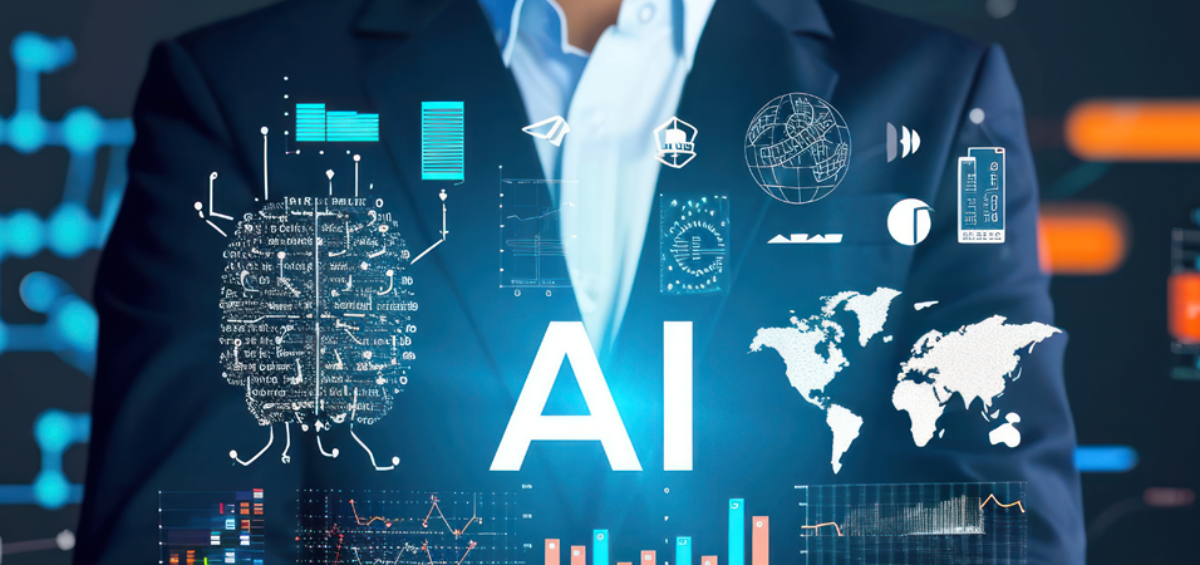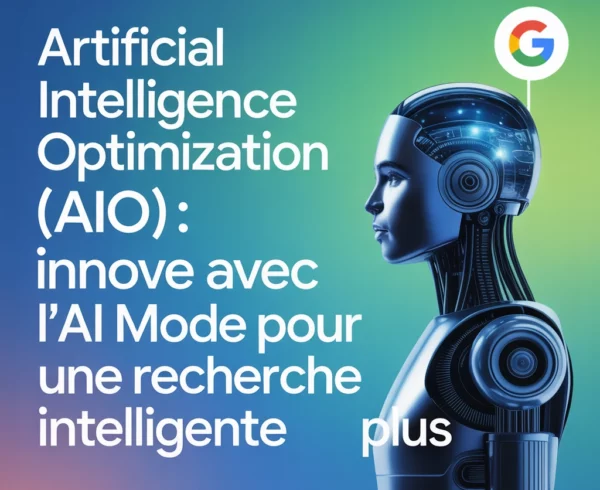Artificial intelligence (AI) is revolutionizing many sectors, and marketing is no exception. AI is redefining marketing strategies by offering marketers new opportunities and allowing them to connect more effectively with their customers. Thanks to advanced algorithms and machine learning, marketers can now efficiently analyze large amounts of data and gain valuable insights to make informed decisions.
One of the ways AI is transforming marketing is through personalization. AI systems can collect and analyze consumer data, allowing marketers to create more targeted and personalized campaigns. With AI, brands can recommend products and services tailored to the specific preferences and needs of each consumer, thereby improving the customer experience and increasing conversion rates.
In addition, AI can also help marketers predict future consumer behaviors, allowing them to better plan their campaigns and optimize their efforts. By using predictive models, marketers can anticipate market trends, purchasing habits, and consumer preferences, giving them a competitive advantage.
In this article, we will explore in detail how AI is revolutionizing marketing and how marketers can leverage this technology to improve their strategies and achieve exceptional results.
Examples of Successful AI-Powered Marketing Campaigns
Many brands have already adopted AI in their marketing strategies with impressive results. Here are some examples of successful marketing campaigns thanks to the use of AI:
- Netflix Personalization Campaign: Netflix uses AI to analyze viewing data and recommend personalized movies and series to each user. Through this approach, Netflix manages to offer a unique user experience, which has contributed to its success.
- Sephora Chatbot Campaign: Sephora uses an AI-powered chatbot to help customers find beauty products that best suit their needs. The chatbot can ask customers questions and provide them with personalized recommendations, thus improving the online shopping experience.
- Coca-Cola Advertising Campaign: Coca-Cola used AI to analyze social media data and identify popular trends and topics among consumers. Through this analysis, Coca-Cola was able to create more targeted and relevant advertisements, which led to an increase in consumer engagement.
These examples show how AI can be used creatively to improve marketing campaigns and achieve concrete results. By adopting AI, marketers can leverage the power of data analysis and machine learning to better understand their customers and create personalized experiences.

AI-Powered Marketing Tools and Technologies
To implement AI-based marketing strategies, it’s essential to know the available tools and technologies. Here are some of the AI-powered marketing tools and technologies:
- Predictive Analytics: Predictive analytics uses AI algorithms to analyze historical data and predict future consumer behaviors. Marketers can use this analysis to plan their campaigns, optimize their efforts, and maximize their return on investment.
- Chatbots: AI-powered chatbots can be used to interact with customers in an automated way. They can answer customer questions, provide product recommendations, and even complete purchases. Chatbots allow businesses to provide 24/7 customer support, thereby improving the customer experience.
- Sentiment Analysis: Sentiment analysis uses AI to analyze comments, reviews, and social media posts to understand consumers’ opinions and emotions toward a brand or product. This analysis can help marketers adjust their campaigns based on consumer reactions.
- Content Optimization: AI can be used to optimize marketing content based on consumer preferences and interests. AI algorithms can analyze user data and recommend relevant content, allowing marketers to create more personalized and engaging messages.
These tools and technologies represent only a fraction of the possibilities offered by AI in marketing. By exploring these options and experimenting with different technologies, marketers can discover new ways to optimize their marketing strategies and achieve exceptional results.
Implementing AI in Marketing Strategies
Integrating AI into marketing strategies requires careful planning and implementation. Here are some key steps to implement AI in marketing strategies:
- Data Collection and Analysis: The first step is to collect relevant data, such as customer demographics, purchase data, and behavioral data. Marketers must then use AI-powered data analysis tools to extract valuable insights from this data.
- Training Predictive Models: Marketers need to train predictive models using the collected data. These models can be used to predict future consumer behaviors, such as likely purchases or product preferences.
- Content Personalization: Using the insights gained from data analysis and predictive models, marketers can personalize marketing content according to consumer preferences and interests. This can include sending personalized product recommendations or creating specific messages for particular customer segments.
- Monitoring and Adjustment: Once AI-based marketing strategies are implemented, it is essential to monitor and adjust them based on the results. Marketers must analyze data in real-time and make necessary changes to improve their campaign performance.
By following these steps, marketers can effectively integrate AI into their marketing strategies and achieve significant results. AI offers unique opportunities to improve the accuracy, relevance, and effectiveness of marketing campaigns, allowing companies to stand out in a competitive environment.


Personalization and customer segmentation with AI
One of the areas where AI is making a significant difference in marketing is in personalization and customer segmentation. AI systems are capable of collecting and analyzing large amounts of data, allowing marketers to better understand the individual preferences and needs of each customer.
Thanks to AI, marketers can create detailed customer profiles, which include information such as product preferences, buying habits, communication preferences, and more. This information can be used to personalize offers and marketing messages, which improves the customer experience and increases conversion rates.
For example, an e-commerce company can use AI to recommend products similar to those the customer has already purchased. By analyzing purchasing data and using machine learning algorithms, AI can predict the customer’s preferences and recommend products that match their tastes.
Furthermore, AI can also help segment customers into more specific groups. Instead of relying on generic customer segments, marketers can use AI to identify more precise customer segments based on their characteristics and behaviors. This allows marketers to create more targeted campaigns and provide more relevant offers for each segment.
By using AI for customer personalization and segmentation, marketers can improve their efficiency and relevance, which results in a better customer experience and an increase in conversion rates. AI opens up new possibilities for marketing, allowing companies to deliver personalized messages and offers at scale.
Predictive analytics and AI for data-driven marketing
Predictive analytics is another area where AI plays an essential role in marketing. By using AI-powered predictive models, marketers can anticipate market trends, consumer behaviors, and customer preferences.
Predictive analytics uses machine learning algorithms to analyze historical data and identify patterns and trends. These models can be used to predict future consumer behaviors, such as likely purchases, product preferences, and online behaviors.
Thanks to predictive analytics, marketers can better plan their campaigns and optimize their efforts. For example, by using predictive models, a retailer can predict which products will be most popular in the coming months and adjust its inventory accordingly. Similarly, a service provider can predict when customers will be most likely to search for its services and plan its marketing campaigns accordingly.
By using predictive analytics and AI, marketers can make more informed, data-driven decisions, which gives them a competitive advantage. However, it is important to note that predictive analytics is not an exact science and is based on models and assumptions. It is therefore essential to validate the results and adjust the models based on new data and market developments.
AI is a great decision-making tool. That said, we’re going to wait for technological advancements to determine a crucial point: will artificial intelligence ultimately be able to take the place of a human? Time will tell! – Chawki Jebali
Ethical Considerations in AI-Based Marketing
The use of AI in marketing also raises important ethical questions. AI can collect and analyze large amounts of personal data, which brings up concerns about privacy and data protection.
It is essential for marketers to use AI responsibly and respect consumer privacy rights. This means obtaining consumers’ consent before collecting their data and ensuring that the data is stored and used securely.
Additionally, marketers should be transparent about the use of AI in their marketing strategies. Consumers should be informed about how their data is being used and have the option to opt-out of such use.
Finally, it is important to ensure that AI is used fairly and without discrimination. AI algorithms can sometimes be biased, leading to unfair or discriminatory outcomes. Marketers must remain vigilant and ensure their models and algorithms are fair and adhere to ethical standards.
By following these ethical considerations, marketers can use AI responsibly and ensure that the benefits of this technology are leveraged fairly while respecting consumers’ rights.


Challenges and Limitations of AI in Marketing
While AI offers many opportunities to improve marketing strategies, there are also challenges and limitations to consider. Here are some of the challenges and limitations of AI in marketing:
- Data Quality: AI relies on high-quality data to provide accurate results. If the data used is poor quality or biased, it can lead to incorrect or biased results.
- Technical Complexity: AI is a complex technology that requires specialized skills and knowledge to be implemented correctly. Marketers must be prepared to invest in training and acquire the necessary skills to use AI effectively.
- High Costs: Implementing AI can be expensive, especially for small businesses with limited resources. Costs include purchasing specialized software and hardware, as well as hiring qualified professionals to manage the AI.
- Model Limitations: The predictive models used in AI can have limitations and errors. It is important to understand these limitations and validate the results obtained from predictive models.
- Consumer Acceptance: Some consumers may be wary of AI use in marketing due to concerns about privacy and data protection. Marketers must be aware of these concerns and work to build consumer trust.
By overcoming these challenges and understanding the limitations of AI, marketers can leverage this technology to improve their marketing strategies and achieve significant results. It is important to adopt a thoughtful and responsible approach when using AI, considering both the benefits and limitations of this technology.
The Future of AI in Marketing
AI is still an evolving technology, and its impact on marketing is only just beginning. In the coming years, we can expect AI to continue playing an increasingly important role in marketing strategies.
One future trend of AI in marketing is the use of machine learning to create even more personalized and engaging customer experiences. Machine learning algorithms can identify customer behavior patterns and provide real-time recommendations, allowing marketers to deliver even more relevant offers and messages.
Furthermore, we can expect AI to play a growing role in marketing automation. AI-powered chatbots and virtual assistants can be used to automate customer interactions, enabling companies to offer 24/7 customer support cost-effectively.
Finally, AI can also help improve the performance measurement of marketing campaigns. AI algorithms can analyze data in real-time and provide valuable insights into campaign effectiveness, allowing marketers to quickly adjust their strategies and maximize their return on investment.
Overall, AI offers many opportunities to enhance marketing strategies and deliver exceptional customer experiences. By adopting this technology thoughtfully and responsibly, marketers can position themselves at the forefront of innovation and achieve outstanding results in an ever-evolving marketing landscape.




















